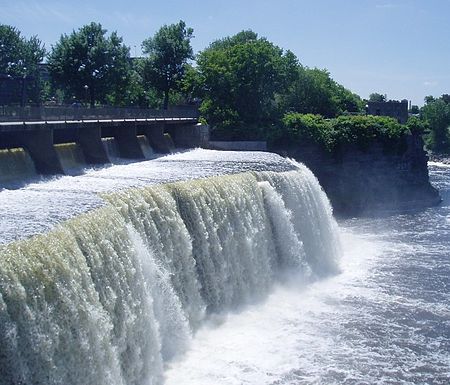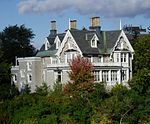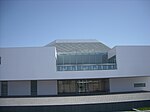Green Island (Rideau River)
Landforms of OttawaRiver islands of OntarioUse Canadian English from January 2023

Green Island in Ottawa, Ontario, Canada, is an island at the junction of the Rideau River, just off Sussex Drive in Ottawa at the Rideau Falls at the confluence with the Ottawa River. It is situated near the neighbourhood of New Edinburgh. To the west of the island is the National Research Council, and Global Affairs Canada (formerly Foreign Affairs, Trade and Development Canada); to the east is 24 Sussex Drive and the embassy of France. On either side of the falls are facilities for a hydroelectric power plant. Down the Rideau river are the ruins of a rail bridge that once led to Ottawa's Union Station.
Excerpt from the Wikipedia article Green Island (Rideau River) (License: CC BY-SA 3.0, Authors, Images).Green Island (Rideau River)
Sussex Drive, Ottawa Lowertown (Rideau-Vanier)
Geographical coordinates (GPS) Address Nearby Places Show on map
Geographical coordinates (GPS)
| Latitude | Longitude |
|---|---|
| N 45.439922 ° | E -75.69476 ° |
Address
John G. Diefenbaker Building
Sussex Drive 111
K1N 5A1 Ottawa, Lowertown (Rideau-Vanier)
Ontario, Canada
Open on Google Maps











